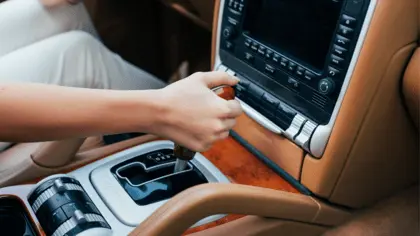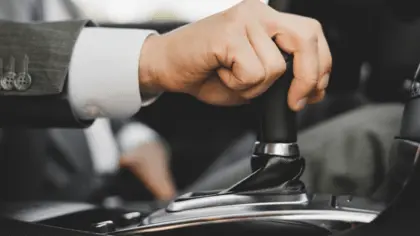Do your car jerks when shifting from 2nd to 3rd gear? Don’t know what’s going wrong and how to avoid it?
Cars can start jerking or shaking while changing gears from 2nd to 3rd due to low transmission fluid, a faulty manual or automatic transmission, or some user error. Although troubleshooting car jerking during gear shifting is simpler, it requires professional assistance to resolve.
Read on to know the most common reasons for a car jerking when shifting from 2nd to 3rd gear, along with a suggestion to fix and avoid it.
Car Jerks When Shifting From 2nd to 3rd Gear?

In general, the transmission controls the gear shifting and keeps the ride smooth during shifting gears. But it can feel rough and cause the car to jerk and shake when shifting from 2nd to 3rd gear due to trouble with the transmission, vacuum, or clutch. Incorrect driving can sometimes make changing gears difficult. Let’s discuss this briefly.
User’s Error
If you are new to a manual transmission, you may experience jerks and even sudden starts because of your driving errors. If you have bad driving training, you may not be able to find out where in the box you are synching into third gear.
In addition, if you use the clutch badly, like by lifting off the clutch pedal too fast, it’ll allow the clutch to slam back together aggressively and cause the car to jerk. If that’s the case, you can either practice clutch control and operation or delegate driving to someone who knows how to use the clutch properly.
Faulty Hose
The vacuum modulator valve inside the vehicle sends a single signal to the vehicle indicating when to shift gears. It remains connected to the intake via a hose. So things can happen, the hose is cracked, blocked, or bent, disturbing the valve’s ability to deliver a signal to the transmission and causing a jerk.
An Insufficient Transmission Fluid
Transmission fluid can also jerk your car when shifting from 2nd to 3rd gear if its level drops too low. So perform a normal fluid check. If the transmission fluid is at a safe level, then check its condition. The fluid should be bright red and look clear.
If you find it contaminated or cloudy and dark, you have to replace the fluid. Remember, you should change the transmission fluid every two years or after driving 30,000 miles.
Sensors
The sensor included in the model car controls plenty of processes, including gear shifting. If you recently purchased the vehicle and discovered that the fluid and vacuum are fine, but it still jerks during gear shifting, a faulty sensor could be the cause. In this case, you’ll require expert help.
Switching Gears at High RPM
Your car can also jerk if you shift gears at high RPM. Luckily, it’s not a concerning reason. In general, peak torque happened at a lower RPM compared to peak HP. If you push the engine too hard, it requires excessively strong acceleration.
In this case, the automatic transmission raises the engine RPM higher than the peak torque. Even the transmission also shifts to a higher gear, and it reduces the engine RPM into the power curve’s high torque portion. As a result, you feel the higher acceleration.
Faulty Engines
A damaged car engine can also be the source of jerking during gear shifting. However, this gear stick jerking depends on the type of engine, whether it is an inline engine or a front wheel transverse engine. If it is an inline engine, jerk can be caused by damaged or worn parts in the differential, transmission, or engine mount. The worn thrust washer inside the transmission can also be responsible. Conversely, jerking in the transverse engine mostly happens due to poor engine mounting.
Automatic Transmissions
Automatic transmissions are considerably more popular than manual transmissions. Automatic transmissions should shift smoothly from one gear to the next, and you should not even notice it changing.
However, it can cause a hard shift, shake, or jerk during gear changing due to insufficient fluid or a lack of fluid. The transmission can also cause other serious issues; hence, it’s recommended that you take your car to an auto repair shop.
Manual Transmission
In a car with a manual transmission, an unusual gear shift or the car jerking when shifting gear is a possible result of worn clutches, damaged gear synchros, or other severe errors. In addition, if the car jerks during shifting from a lower to a higher gear, like from 2nd to 3rd, there can also be other reasons.
Most likely, you shift the gear too slowly, and the engine speed drops too low before you can re-engage the clutch.
In this case, the car will jerk as the clutch jerks the engine to the right speed. At that time, the passenger may also move forward from their seats. Conversely, if you shift the gear too quickly, the clutch will also engage too quickly and create the opposite scenario.
Hence, it requires ample practice and knowledge to operate a manual transmission to avoid these hassles. Unfortunately, many people don’t make the effort to learn and practice manual transmission and often jerk the car during gear shifting.
How to Stop a Car from Jerking When Changing Gears?

The secret to changing gears smoothly is maintaining gentle pressure on the accelerator pedal while pressing the clutch and changing the gear. Then clutch up lightly to avoid the car jerking. In this manner, the accelerator will increase engine speed to compensate for road speed and provide smooth gear shifting.
It is known as “rev matching” in advanced driving. You may also need to press the foot brake during gear changes if the situation demands it. Learning smooth driving with accelerating, braking, gear changing, and steering requires plenty of practice.
FAQs
1. Can transmission cause jerk?
The control module of the transmission controls the gear changes during acceleration. So transmissions can cause the car to jerk due to the delays in shifting.
2. Is fixing a jerky transmission expensive?
The cost of fixing jerky transmissions varies depending on various factors; however, it’s a bit pricey. On average, repairing a jerky transmission can cost around $1,800 to $3,400.
3. Is it safe to drive a jerking car?
Driving a jerky car is dangerous, especially at high speeds in bad weather or in heavy traffic. Instead of driving a jerky car, you should park the car in a safe place and inspect it or take it to the nearest repair shop.
Final Words
If your car jerks when shifting from 2nd to 3rd gear, it means something is worn out or damaged. This can also happen due to a lack of maintenance or insufficient driving skill. Whatever the reason, don’t keep driving with this issue, particularly on the highway.
Instead, troubleshoot the problem and fix it, even if it costs thousands to repair or months to learn to drive.

